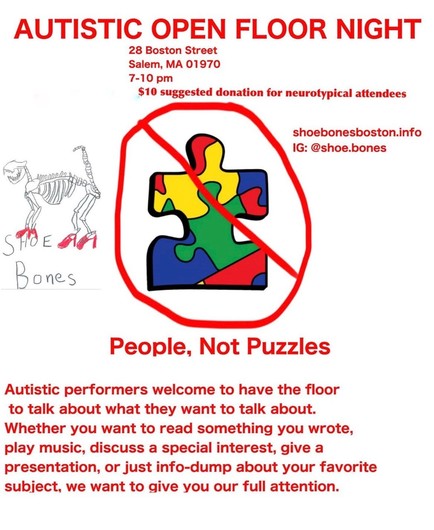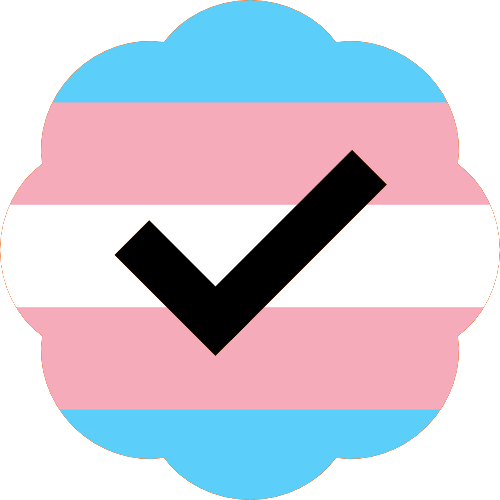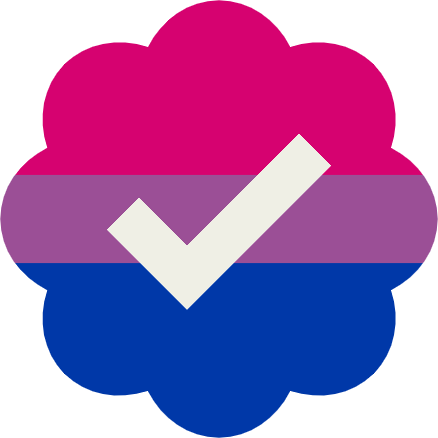THIS FRIDAY, APRIL 25TH AT 7 PM! It’s April! Which is autism acceptance month!!! YIPPEE!!! As autistic people, we rarely have space to openly be who we are, and often are discouraged from expressing ourselves authentically. With autistic open floor, we aim to create a space with no judgement, no expectations, and lots of encouragement. If you are autistic (diagnosed or not! Psychiatry is a scam!) (any level of support needs or masking!!!) and have wanted a space to express yourself, perform, info dump, or just be surrounded by similar brains, please come to autistic open floor this Friday, the 25th
.
.
.
#autismacceptance #autismawarenessmonth #salemma #disability #neurodivergent #artscommunity #boston
Recent searches
Search options
#autismacceptance
there's a point in every person's childhood where they have to make this choice for the first time.
everyone gets it wrong occasionally. for us autistic people, it can be traumatising and lead to difficulties in communication, particularly when there is a problem but especially when that problem is our own discomfort—because what we learn from this polite-versus-honesty dilemma is that our own discomfort doesn't matter, especially if our discomfort makes our interlocutors feel bad.
https://mastodon.world/@jeffowski/114350034057525272
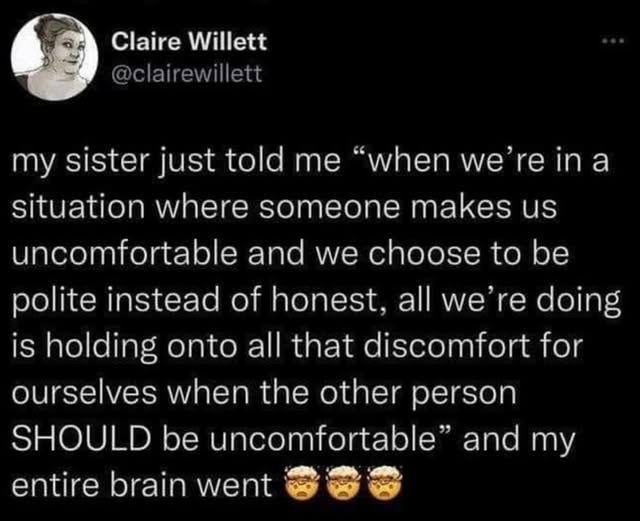
Autism Acceptance Vs Awareness Webinar Tomorrow!
Info here-
https://www.davidgrayhammond.co.uk/p/autism-acceptance-webinar-tomorrow?r=2anro9
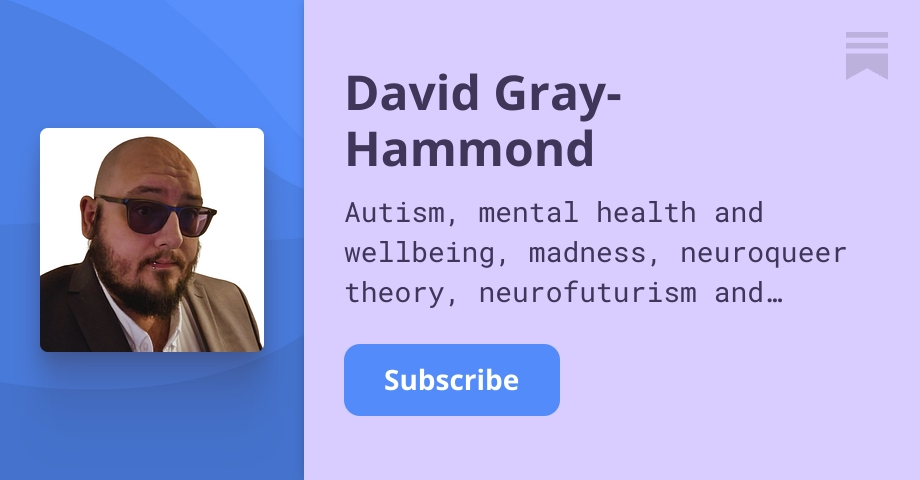
Reminder that self diagnosis is valid and doesn't take away anything from anyone else. Let people identify. It's just as "official" of diagnosis as a random stranger looking at you for three hours of your life is determining your fate.
(Also big thanks to Mr. Owltistic for writing down your M&M eating habits for me to steal for this comic. Don't worry, I got his permission to do it. )
Benevolent Ableism is a very real growing problem around ABA and it's infringing of autism/human rights these days....
#AntiABA #EndABA #ABAReform #StopABA #Neurodiversity #ActuallyAutistic #AutisticVoices #ListenToAutistics #DisabilityRights #AutismAdvocacy #SayNoToABA #AutismAcceptance #ABAisAbuse #BoycottABA
#AutisticJustice #AutisticRights #AutismEducation #AutismAwareness #HumanRights #AutismRevolution #StopTheHarm #BanABA #NothingAboutUsWithoutUs #AutisticCommunity #Neurodivergent
Question 4 from https://autistics.life/@marionline/114262841963843028
4. How would you explain autism to someone who never heard about this?
Hm.
Hard question. Especially because not many people have actually NEVER heard of it. Everyone I know seems to at least believe they have an idea of what autism is. They know someone who has a child who is autistic or know someone who knows someone who's cousin is autistic and so on and so forth. That leads to many half-truths and stereotypes being shared around.
So, in a hypothetical world where that is not the case, what would I do?
I don't quite know.
I would probably start by saying it is a neurodevelopmental disorder. It encompasses a vast spectrum and every autistic individual faces individual challenges. Some people's support needs might be bigger than others and not all of them are easy to spot at first glance. Some autistic people might be able to hide their problems in public which does not mean that they do not need accommodations. There are commonalities between people on the spectrum which include:
A difference in how the brain interprets stimmuli, resulting in either hyper- or hyposensitivity in areas like sound, smell, pain etc. That also effects the inner world of autistic people, knowing and understanding their own feelings, boundaries and things like proprioception, hunger or the need to pee.
Most autistic people have a "spiky ability profile" meaning they have high skills or expertise in some areas while underperforming in others. Executive function is probably impacted by that. You should not assume a task is easy just because you find it easy.
Additionally, social interactions with autistic people can be confusing to non-autistic people because their behavior deviates from what is commonly referred to as "the norm". Autistic people are very capable of showing love and care, it might just look a bit different to what one might be used to.
This is like the basic framework I would like to work with when explaining autism to someone. I would go further to include things like meltdown, shutdowns, skill regression, masking, etc. I would probably talk for hours if they let me. But at the end of the day I can only truly speak about my own lived experience which taints my judgement.
The autistic spectrum is vast, i do not think I can encompass all the aspects it entails. Which just makes it that much more important for autistic communication, by voice, writing or otherwise, to be shared with the world.
We are all worthy of being heard.
@actuallyautistic #actuallyautistic #autismacceptance #Autism #AutismApril
you cannot "cure" autism. it's a part of someone and how their brain works. you can't always tell if someone has autism. if you've met one autistic person, you've met one autistic person. no, autism isn't a disease, it's a disability. no, vaccines don't cause autism. yes, girls can be autistic. 
7 days.
I lasted 7 days this time.
It wasn’t personal, or course. It was just everything about the way I communicate and who I am.
Just not a fit.

I really thought it was going well this time.
Remember, #AutismAcceptance means accepting people even if you don’t know they’re autistic. Working with them, not cutting them loose. Human beings take time.
#redinstead #autismacceptance #original
Hate groups do not like seeing this at all. Let's show autism speaks the door.
#actuallyautistic #ActualllyAutistic #autismacceptance
.
A thread.
Jeff’s Antisocialization theory and Neurodiversity theory.
.
/2
.
4. So, my experience, my reading of the Allistic science and psychology is that it starts with, “Humans are social animals, SO,” right, “THEREFORE,” - it’s at the beginning of the causal chain, it all starts with our supposed Natures and proceeds from there.
.
Surely I have people, proper psychologists around here - is this a theory, what I said about spanking creating social discrimination?
Anyone?
.
I always feel that I must be being immature and unfair to say these things - but people keep
surprising me too. In fact, if I were a betting sort - anyone?
.
/2
#actuallyautistic #ActualllyAutistic #autismacceptance
.
A thread.
Jeff’s Antisocialization theory and Neurodiversity theory.
.
/1
.
Always I am trying to lay it out in short form, spoiler alert: it never works.
.
1. Spanking is an attack and can be a trauma and what a spanked human baby, born to learn, learns is that the human they archetypically expect to love them attacks them, the first human they interacted with attacked them.
.
2. If we could run, it would be like any hostile animal, like a predator, simple, and possible to learn, but we cannot, so there is conflict, pain, fear, and hatred, we have reasons not to acknowledge or express these, we are still in the predator’s larder.
.
3. This conflict produces ambivalence, we learned early to hate and fear, but we must find love also, somehow, and so we are split within ourselves - and this splitting is what we produce in the world, this splitting is what makes us a “social animal,” whereby we must have people to love, which seems healthy enough, but we must also find people to hate, to reconcile our earliest childhood survival learning.
.
/1
.
I think that’s new, a thing I intuited but never said before: this early abuse creates the NT social life.
.
tired. TBC, hopefully.
Je connaissais quelques chiffres déprimants sur l’autisme (très forte proportion de personnes sans emploi et/ou présentant des troubles mentaux, notamment), et là j’apprends que l’espérance de vie des personnes autistes serait réduite de 17 ans par rapport à la moyenne. Voire 30 ans pour les autistes avec déficience intellectuelle. Outch.
https://fr.wikipedia.org/wiki/Mortalité_des_personnes_autistes
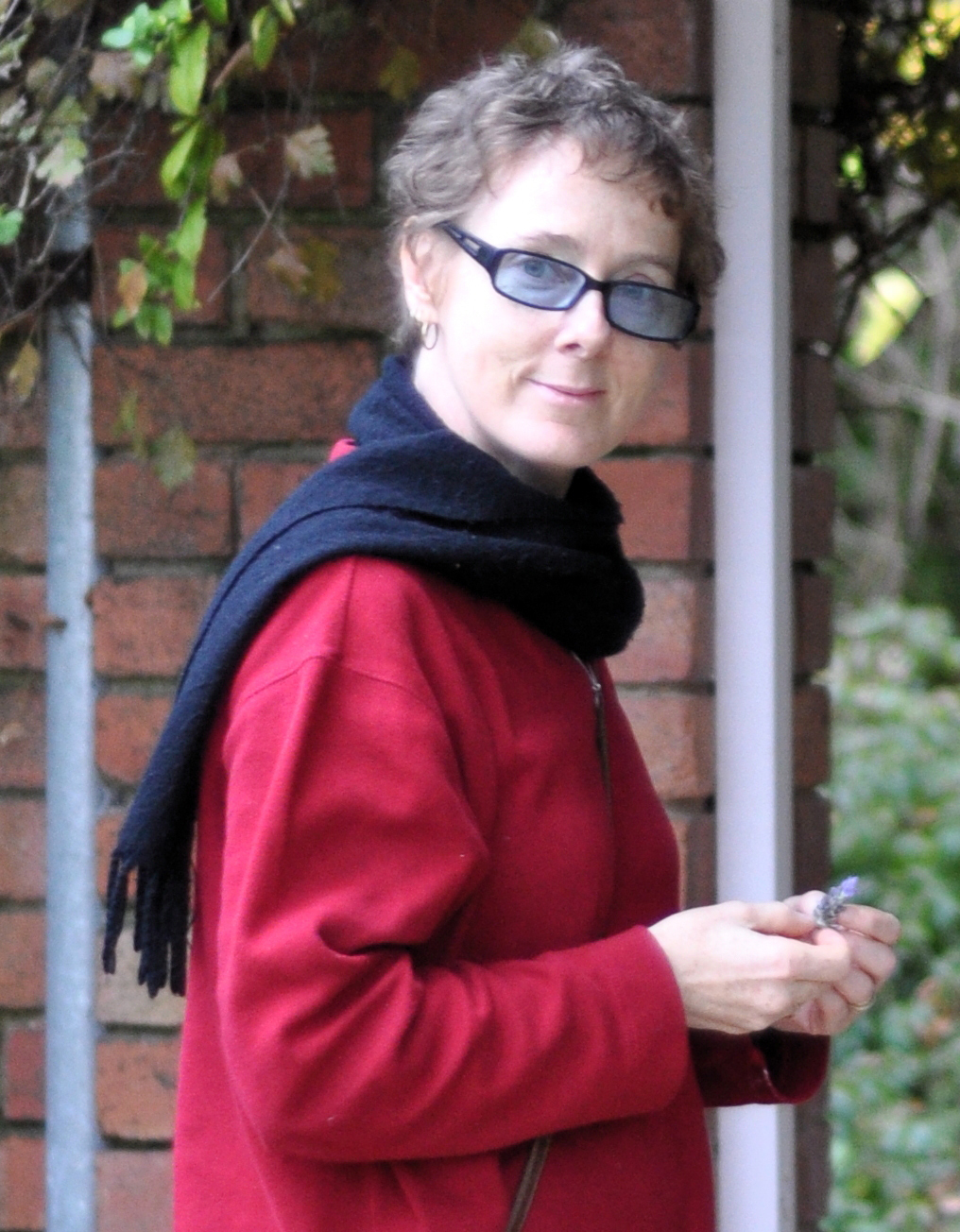
Ah yes, awareness month. Be VERY aware. We walk among you... Muahahaha!
Reshare~
@punishmenthurts some of the worst-for-me people I have ever met, have a demeanor to express themselves as the nicest people, with their co-workers also in agreement, but those same kind of "nice" and "correct" people tend to react to me if I had literal shit on my face.
You and me both, tricked since birth into believing in the wrong-for-us stuff.
We know better now, but damn... that's a lot of decades we lost.
This month is Autism Acceptance Month. As Autistic people, we don't need just the term thrown about for a month. We need people to understand our differences and accept them. Then, maybe, we can feel included, accepted and supported.
So, I will be posting about autism-related terms to try to increase understanding.
The first one is: the “double empathy problem” — A term coined by Dr Damian Milton to describe how people with different backgrounds may have trouble understanding each other. Both autistic and non-autistic people have differences that can contribute to social disconnection and understanding.
Here is a link for more information: https://reframingautism.org.au/miltons-double-empathy-problem-a-summary-for-non-academics/
I’m a single mom fighting to stop foreclosure on the only home my autistic, nonverbal son has ever known.
Adam thrives on routine and safety—this house is his world.
We need your help to hold on.
Please share or support if you can.
#AutismAcceptance #Neurodivergent #SingleMom #GoFundMe #MutualAid
#NHPolitics
Authentic Spoon
Nobody is going to change us, we are unique and authentic
Oh yes, #redinstead #asd #autistic #autisticprideday #autismacceptance We fight hate groups every single day.


